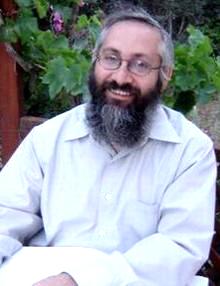From the website: https://www.ravkooktorah.org/
AMALEK
by Rabbi Chanan Morrison

“Remember what Amalek did to you on your way out of Egypt. When they encountered you on the way, and you were tired and exhausted, they cut off those lagging to your rear, and they did not fear God. Therefore… you must obliterate the memory of Amalek from under the heavens.” (Deut. 25:17-8)
True Erasing
The Torah prohibits 39 categories of melachah — activities which are forbidden on the Sabbath. One is to erase writing. There are, however, different forms of erasing. Erasing merely to blot out what is written is a destructive act, and destructive acts are not forbidden on Shabbat by Torah law. Melachah is constructive activity, similar to God’s creative acts when forming the universe.
So what form of erasing is prohibited on the Sabbath? Mocheik al m’nat lichtov — erasing with the intention of writing again. One’s intention must be to clean the surface in order to write over the original letters. This type of erasing is a positive, constructive activity, and therefore is incompatible with the special rest of the Sabbath day.
Restoring God’s Name and Throne
Rav Kook explained that this principle may also be applied to the mitzvah of “erasing” Amalek. The mitzvah is not simply to obliterate Amalek so that there will no longer be any more Amalekites in the world. That would be a purely destructive act.
What then is the true mitzvah of destroying Amalek?
Amalek’s goal was to eradicate the nation which bears God’s Name in the world. Amalek could not tolerate the idea of a people with whom God made a special covenant, a people whose very existence implies ethical obligations and holy aspirations. The complete expression of the mitzvah to destroy Amalek is accomplished when we “erase in order to write.” It is not enough to wage war against Amalek. The destruction of Amalek must have a productive goal. We must obliterate Amalek, and all that this evil nation represents, with the intention of “transforming the world into a kingdom of the Almighty.”
As the Midrash explains:
“God’s Hand is raised on His throne: God shall be at war with Amalek for all generations.” (Ex. 17:16)
“Why is the word for ‘throne’ shortened, and even God’s Name is abbreviated?[1] God swore that His Name and His Throne are not complete until Amalek’s name will be totally obliterated.” (Tanchuma, Ki Teitzei 11; Rashi ad loc)
We are charged to replace Amalek with the holy letters of God’s complete Name. We must restore God’s complete throne — i.e., God’s Presence in the world through the special holiness of the Jewish people, who transmit God’s message to the world.
(Sapphire from the Land of Israel. Adapted from Mo’adei HaRe’iyah, pp. 241-242)
[1]The verse uses the word keis instead of the more common word kisei for ‘throne.’ And it uses the shorter, two-letter Name of God, as opposed to the regular four-letter Tetragrammaton.
MIRIAM
“Remember what God did to Miriam on your way out of Egypt.” (Deut. 24:9)
Six Zechirot
Six times the Torah commands us to remember certain events. These six zechirot (remembrances) are listed after the morning prayers:
- The Exodus from Egypt.
- The Torah’s revelation at Sinai.
- The attack of Amalek and the command to destroy him.
- The rebellious acts of the Israelites in the desert.
- The Sabbath day.
- Miriam’s punishment for slandering Moses.
The first five are clearly important for us to remember, as they are major events or fundamental principles of faith. Yet the last one, Miriam’s punishment for slandering Moses, doesn’t seem to fit with the rest of the list. Does it make sense to consider Miriam’s mistake in judgment on par with historical milestones such as the Exodus from Egypt or the revelation of Torah at Sinai?
In order to appreciate the fundamental lesson of Miriam’s punishment, we must understand the essence of her error.
Moses’ Prophetic Level
The Torah relates (Num. 12:1-15) that Miriam spoke against her younger brother Moses for neglecting his wife. Miriam felt that the fact that Moses was a prophet did not justify his behavior. “Is it only to Moses that God speaks? Does He not also speak to us?” Even though we — Miriam and Aaron — are also prophets, we still maintain normal family relations.
God responded to this accusation by appearing suddenly to Miriam and Aaron:
“Listen carefully to My words. If someone among you experiences Divine prophecy, then I make Myself known to him in a vision; I speak to him in a dream. This is not true of My servant Moses… With him, I speak face to face… so that he sees a true picture of God.”
Far worse than her sin of slander, Miriam erred in her evaluation of the nature of Moses’ prophecy. Had Moses been just a regular prophet, Miriam would have been correct in her criticism. But in fact, Moses’ prophetic vision was on a higher plane than common prophecy. Moses’ vision was not distorted and murky, but crystal-clear — he saw through an aspaklariah me’irah, a clear lens. As a result, the Five Books of Moses are on a higher level than the other books of the Bible. No prophet may challenge or contradict Moses’ prophecies.
It is for this reason that we are commanded to remember Miriam’s punishment for speaking against Moses. By recalling her mistake, we are reminded to appreciate the unique nature of Moses’ prophetic vision.
(Adapted from Olat Re’iyah vol. I, p. 334)






